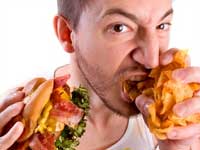Just In
- 7 hrs ago

- 8 hrs ago

- 11 hrs ago

- 13 hrs ago

Don't Miss
- Sports
 Who Won Yesterday's IPL Match 39? CSK vs LSG, IPL 2024 on April 23: Marcus Stoinis Fires 63-ball 124 To Quiet Chepauk
Who Won Yesterday's IPL Match 39? CSK vs LSG, IPL 2024 on April 23: Marcus Stoinis Fires 63-ball 124 To Quiet Chepauk - News
 Senator Lambie Calls For Elon Musk's Imprisonment Over Wakeley Church Stabbing Posts
Senator Lambie Calls For Elon Musk's Imprisonment Over Wakeley Church Stabbing Posts - Movies
 Mirzapur 3 OTT Release Date, Platform: When Will Mirzapur Season 3 Premiere On Amazon Prime Video?
Mirzapur 3 OTT Release Date, Platform: When Will Mirzapur Season 3 Premiere On Amazon Prime Video? - Finance
 25% Dividend Record Date: Logistic Stock Nears 1-Year High And It Belongs To Mahindra; Motilal Neutral
25% Dividend Record Date: Logistic Stock Nears 1-Year High And It Belongs To Mahindra; Motilal Neutral - Education
 Telangana Inter Manabadi 1st and 2nd Year Results 2024 to be Declared Tomorrow
Telangana Inter Manabadi 1st and 2nd Year Results 2024 to be Declared Tomorrow - Automobiles
 Chrysler Pacifica Marks Seven Years As Most Awarded Minivan With New Campaign
Chrysler Pacifica Marks Seven Years As Most Awarded Minivan With New Campaign - Technology
 Xiaomi Robot Vacuum Cleaner S10, Handheld Garment Steamer, and Redmi Buds 5A Launched in India
Xiaomi Robot Vacuum Cleaner S10, Handheld Garment Steamer, and Redmi Buds 5A Launched in India - Travel
Kurnool's Hidden Gems: A Guide To Exploring India's Lesser-Known Treasures
Why Can't You Resist Your Snacks & Drinks?

These food items with high glycaemic index (GI) trigger an addictive sugar rush, which could be difficult to resist and may lead to obesity. According to the scientists, these products could also face advertisement bans and caution labels along with high taxes and strict regulations.
A similar brain mechanism was found under drug addiction as induced by these food products, thus, implying that heavily processed carbohydrates could cause addiction.
Food with a high GI caused blood-sugar levels to spike suddenly, as told by lead researcher Simon Thornley, from Auckland Regional Public Health Service.
Such sugar rush is known to fuel the brain areas similar to that done by the drugs and nicotine. This is because food with low GI get blood sugar and insulin levels soaring, thus triggering a feeling of contentment and satiety.
The fact still in theoretical stage, if proved could have important public health implications. As concluded by Thornley, high in-take of too much of high-carb foods experienced symptoms of addiction - loss of control, a compulsion to keep taking higher amounts to get the same feel.
This is the first time scientists have pointed GI as the cause of addiction, it also shows similar withdrawn symptoms as well. As found in drug addicts, people with higher weight also had fewer brain receptors.
The study proved that, such people could, however, benefit from getting their hit of blood sugar more slowly by eating low-GI foods or even using a food version of the nicotine patch.
"Just as slow release forms of nicotine help smokers recover from addiction, low GI foods may reduce cravings in obese or overweight populations," The Sydney Morning Herald quoted Thornley and his colleagues at the University of Auckland as saying. AGENCIES
-
 healthMyths vs Facts: Is Honey Better Than Sugar For Weight Loss? Can It Burn Belly Fat?
healthMyths vs Facts: Is Honey Better Than Sugar For Weight Loss? Can It Burn Belly Fat? -
 healthMyths vs Facts: Can Late-Night Eating Lead To Weight Gain?
healthMyths vs Facts: Can Late-Night Eating Lead To Weight Gain? -
 healthBeat Malnutrition Deliciously: Top 10 Therapeutic Foods
healthBeat Malnutrition Deliciously: Top 10 Therapeutic Foods -
 healthMyths vs Facts: The Bigger You Are, The Less Healthy You Are; Is It True?
healthMyths vs Facts: The Bigger You Are, The Less Healthy You Are; Is It True? -
 healthSigns You Are Eating Too Much Sugar; How Much Sugar Is Too Much?
healthSigns You Are Eating Too Much Sugar; How Much Sugar Is Too Much? -
 wellnessExpert Article: Track Your Metabolism In Real-Time
wellnessExpert Article: Track Your Metabolism In Real-Time -
 nutritionAre Rice Cakes Healthy? Do They Help With Weight Loss?
nutritionAre Rice Cakes Healthy? Do They Help With Weight Loss? -
 wellnessHealthy Weight Awareness Month: Expert Talks About The Importance Of Healthy Weight - Key For Good Health
wellnessHealthy Weight Awareness Month: Expert Talks About The Importance Of Healthy Weight - Key For Good Health -
 wellnessThe Ideal Weight For Indians Increased By 5 Kg: Says A New Survey
wellnessThe Ideal Weight For Indians Increased By 5 Kg: Says A New Survey -
 disorders cureInternational No Diet Day 2020: What Are Eating Disorders?
disorders cureInternational No Diet Day 2020: What Are Eating Disorders? -
 diet fitnessHow To Gain Weight In A Healthy Way?
diet fitnessHow To Gain Weight In A Healthy Way? -
 wellnessEverything You Need To Know About Clean Sleeping
wellnessEverything You Need To Know About Clean Sleeping


 Click it and Unblock the Notifications
Click it and Unblock the Notifications



